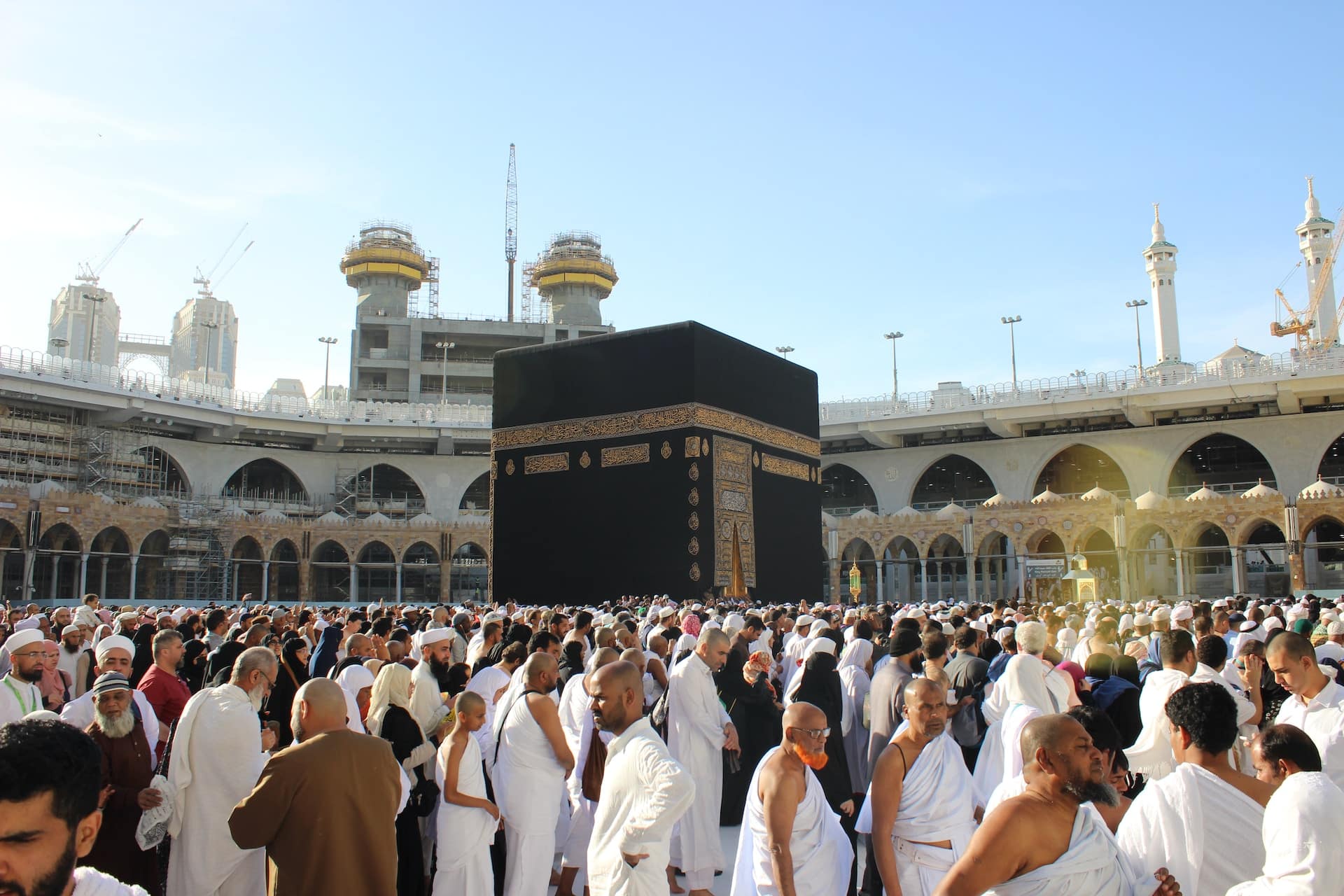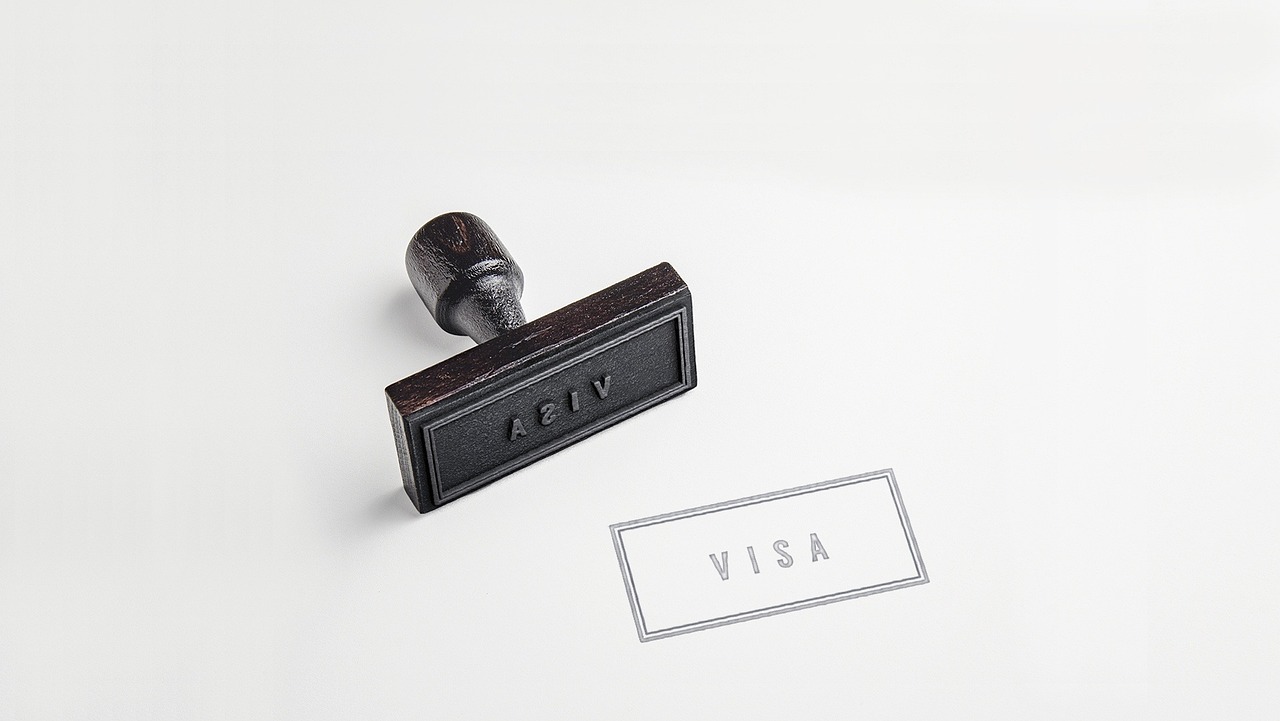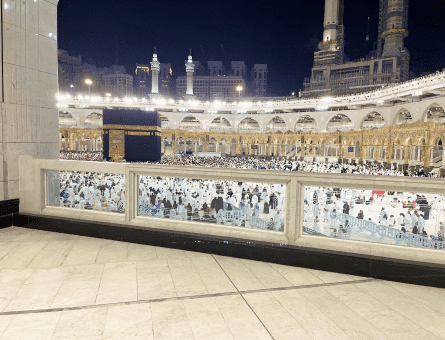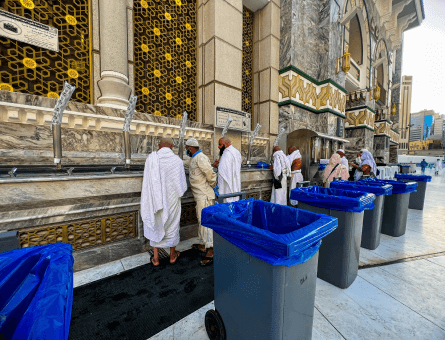Hajj Visa – How to Apply For a Hajj Visa – Complete Guide 2024 – Visa Requirements, Application, Fees, etc
Every year, millions of Muslims from around the world embark on a spiritual journey to perform Hajj in the holy city of Mecca in Saudi Arabia. However, getting a Hajj visa is nothing short of a once-in-a-lifetime opportunity. Consider yourself fortunate if you get selected for a Hajj visa, as obtaining one can be quite challenging.
Whether you are planning to undertake Hajj for the first time or wish to enhance your knowledge, this guide will serve as your go-to resource for all things related to the Hajj visa application process.
What is a Hajj Visa?
A Hajj visa is a special visa issued by the Saudi Arabian government to Muslims who wish to perform the Hajj pilgrimage. Hajj is one of the five pillars of Islam and is considered a mandatory religious duty for all Muslims to perform at least once in their lifetime. The Hajj visa allows individuals to enter Saudi Arabia specifically to perform Hajj.

Why is Hajj so important to Muslims?
Hajj holds great significance for Muslims for several reasons. Here are a few reasons why Hajj is important:
- Fulfilling a Religious Obligation
Performing Hajj is obligatory for financially and physically capable Muslims. It is seen as a demonstration of faith and obedience to Allah’s commandments.
- Spiritual Cleansing
Muslims believe that Hajj offers an opportunity for spiritual purification and seeking forgiveness for past sins. It is a chance to start afresh and seek closeness to Allah.
- Honoring Prophet Ibrahim (AS)
Hajj includes rituals commemorating the trials and actions of Prophet Ibrahim (AS) and his family. Muslims follow in his footsteps by performing rituals like Tawaf (circumambulation of the Kaaba) and Sa’i (running between the hills of Safa and Marwa).
When can you perform Hajj?
Hajj takes place during Dhul Hijjah, which is the 12 month in the Islamic calendar also known as the “Hijri calendar”. Hajj will begin on the 8th day of Dhul Hijjah and will last for approximately 5 to 6 days, ending on the 12th to 13th day of Dhul Hijjah.
Hajj is performed during Dhul Hijjah and has two main types: Hajj al-Tamattu‘ and Hajj al-Qiran:
- Hajj al-Tamattu’
This is the most common form of Hajj. It involves performing Umrah during the months of Shawwal, Dhul-Qa’dah, or the first ten days of Dhul-Hijjah. After completing Umrah, pilgrims exit the state of Ihram and re-enter Ihram for Hajj rituals.
- Hajj al-Qiran
In this form of Hajj, pilgrims combine the rituals of Umrah and Hajj without leaving Ihram in between. They enter the state of Ihram to perform both Umrah and Hajj simultaneously.
Do you need a visa for Hajj?
Yes, a visa is required to perform Hajj. The Saudi Arabian government issues special Hajj visas to individuals who meet the eligibility criteria. The visa is specific to the purpose of performing the Hajj pilgrimage and is valid for a particular period, usually covering the duration of the pilgrimage itself.

Hajj Visa Application Process
Applying for a Hajj visa involves thorough preparation, accurate completion of the application form, and providing the necessary supporting documents. Following the guidelines provided by the Hajj authority or licensed travel agency is important to ensure a smooth and successful visa application process. Remember to start the application process well in advance to allow for ample time.
Step 1: Research and Contact Authorities
The first step in applying for a Hajj visa is to research and identify the relevant authorities or licensed travel agencies responsible for processing visa applications. Contact them to gather information about the application process, requirements, and any updates specific to the current year.
Step 2: Obtain the Hajj Visa Application Form
Once you have identified the appropriate authorities or agencies, obtain the Hajj visa application form. This form is essential for providing the details and personal information required for visa processing. The application form can be obtained from the Hajj authority’s website or the licensed travel agency.
Step 3: Complete the Application Form
Carefully fill out the Hajj visa application form, ensuring that all the required fields are completed accurately and honestly. Provide your full name, passport, contact information, and personal background details. It is crucial to double-check the form for any errors or omissions before proceeding to the next step.
Step 4: Gather Supporting Documents
Prepare the supporting documents required for the visa application as mentioned by the Ministry of Haj and Umrah. Commonly requested documents include:
- Valid Passport: Ensure the applicant passport is valid for at least six months beyond the intended entry date into Saudi Arabia. It should also have at least two blank visa pages.
- Proof of Identity: Include copies of applicant national identity card or any other identification documents as required.
- Proof of Islam: Provide documentation that confirms applicant’s Muslim identity, such as a certificate from a recognised Islamic institution or a letter from your local mosque.
- Sponsorship Details: If the applicant applies through a licensed travel agency, they will be their sponsor. If not, the applicant must provide sponsorship details from a reputable Saudi Arabian organisation or an authorised individual.
- Photographs: Attach recent passport-sized photographs that meet the specifications outlined by the authorities. Typically, two to four photographs are required.
- Medical Certificate: Some authorities may request more information such as a medical certificate verifying fitness of the applicant to undertake the pilgrimage. Consult with the Hajj authority or travel agency, and ask them questions regarding this requirement.
- Other Supporting Documents: Additional documents may be requested, such as marriage certificates (if applicable), vaccination certificates, or proof of financial capability to cover the pilgrimage expenses.
Step 5: Submit the Application
Once you have completed the application form and gathered all the necessary supporting documents, please submit them to the designated Hajj authority or the licensed travel agency.
Step 6: Wait for Visa Approval
After submitting your application, you must wait for the visa approval. The processing time can vary, so it is advisable to apply well in advance to allow for any potential delays. Contact the authorities or travel agency for updates regarding your visa status.
Step 7: Obtain the Hajj Visa
Upon receiving approval, you will be issued the Hajj visa. Collect the visa from the designated authority or the travel agency, depending on the specified procedure. Ensure you have the visa and all other required documents ready before proceeding with your travel arrangements for the Hajj pilgrimage.
How long does it take to get a Hajj Visa?
The processing time for a Hajj visa can vary depending on several factors, including the country of application and the time of year. Generally, obtaining a Hajj visa can take several weeks to a couple of months, based on the requirements set by the ministry.
Starting the application process well in advance is recommended to allow for any potential delays. It’s important to stay in contact with the relevant authorities such as the Ministry of Hajj and Umrah in Saudia Arabia or licensed travel agent for updates on the status of your visa application.

Who is eligible for Hajj?
Hajj is open to all adult Muslims who meet specific eligibility criteria. Here are the key requirements:
- Islam: The individual must be a practicing Muslim, as Hajj is a religious obligation within the Islamic faith.
- Mental and Physical Ability: The person should be mentally and physically capable of performing the rigorous rituals of Hajj. This means they should be in good health and free from any illness or disability hindering their ability to undertake the pilgrimage.
- Financial Capability: The individual must have the financial means to cover the expenses of the Hajj journey, including travel, accommodation, and other associated costs. They should be able to provide for themselves and any dependents during the pilgrimage.
- Age: Generally, individuals must be of legal adult age to perform Hajj. Minors are not eligible to perform Hajj unless accompanied by their parents or guardians.
- Legal Status: The person should have a valid passport and the necessary legal documentation to travel to Saudi Arabia for the pilgrimage. This may include obtaining a visa, adhering to immigration requirements, and complying with any additional regulations set by the Saudi Arabian authorities.
What is the maximum age for Hajj?
There is no specific maximum age for performing Hajj. As long as an individual meets the eligibility criteria mentioned above and is physically and mentally capable of undertaking the pilgrimage, they can perform Hajj regardless of age.
Hajj Visa Requirements
For obtaining a Hajj visa you have to meet specific requirements set by the Saudi Arabia government. You can view the requirements in detail on the Saudia Arabia government page, or ask your travel agents about it. While the exact requirements may vary depending on the country of origin and the year, here are some common requirements:
Requirement 1: Valid Passport
All Hajj applicants need to have a valid passport with a minimum validity of six months beyond the intended entry date into Saudi Arabia. The passport should also have at least two blank visa stamp pages.
Requirement 2: Proof of Identity
Proof of identity, such as a national identity card or any other acceptable identification documents, may be required during the visa application process.
Requirement 3: Proof of Islam
Applicants need to provide documentation to establish their Muslim identity. This may include a certificate from a recognised Islamic institution, a letter from a mosque confirming their membership, or any other acceptable proof of being a practicing Muslim.
Requirement 4: Sponsorship Details
Applicants must have a sponsor in Saudi Arabia. The travel agency acts as the sponsor if applying through a licensed travel agency. If not, individuals must provide sponsorship details from a reputable Saudi Arabian organisation or an authorised individual.
Requirement 5: Photographs
Recent passport-sized photo meeting the specifications set by the Saudi authorities are required. The number of photographs needed may vary, typically two to four.
Requirement 6: Vaccination Certificates
Providing proof of certain vaccinations, such as meningitis and polio, is often mandatory. Consult with the relevant authorities or travel agencies to determine the specific vaccination requirements for Hajj.
Requirement 7: Financial Capability
Applicants may be required to demonstrate their financial capability to cover the expenses of the Hajj journey. This can include providing bank statements, proof of employment, or other evidence of sufficient funds.
Hajj Visa Price
The cost of a Hajj visa can vary depending on several factors, including the country of application and the services the licensed travel agency provides. The price typically includes visa fees set by the Saudi Arabian government and any additional charges levied by the travel agency for their services, such as accommodation, transportation, and guidance during the pilgrimage.
Hajj packages in 2024 start from USD 4,200 and can go up to USD 10,000 for more premium packages.

Why has Hajj become so expensive over the years?
Hajj has become more expensive over the years due to various factors. Some reasons for the increase in costs include:
- Infrastructure Development
Saudi Arabia has made significant investments in expanding and improving the infrastructure to accommodate the increasing number of pilgrims. These developments come at a high cost, reflected in the overall expenses.
- Enhanced Travel Packages
Travel agencies now provide more comprehensive services to facilitate the pilgrimage experience, such as transportation, accommodation, meals, and guidance. These additional services contribute to the overall cost.
- Safety and Security Measures
The Saudi government has implemented stricter safety and security measures to ensure the well-being of pilgrims. These measures require significant resources and can contribute to the overall expenses.
- Exchange Rates and Inflation
Fluctuations in exchange rates and inflation can impact the cost of goods and services, including those associated with Hajj. Changes in the global economy can influence the overall cost of the pilgrimage.
- High Demand
Hajj attracts millions of Muslims worldwide each year. The high demand for limited resources, such as accommodations and transportation, can increase prices.
Can I pay someone to do Hajj for me?
It depends, if you are meet all the requiements and are able to perform Hajj but would rather pay someone to perfrom Hajj on your behalf then this is not permissable as Hajj is considered a personal obligation and a unique spiritual journey for each Muslim. It is a physical and spiritual act of worship that requires personal effort and devotion. It is impossible to delegate this responsibility to someone else by paying them to perform Hajj on your behalf. Each Muslim is expected to perform Hajj if physically, financially, and mentally capable.
However, Hajj Badal, also known as Hajj e Badal in Urdu or “Proxy Hajj”, is when some who are unable to perform Hajj by themselves get a compulsory Hajj performed by another person on their behalf. In other words, Hajj Badal is when you perform Hajj on behalf of someone (a loved one) who is sick and has no cure, is old, is disabled, or has passed away.
Moreover, based on the teachings of all four schools of thought, Hajj Badal can only be performed for a person once a year. Also, one will only be eligible to perform Proxy Hajj once they have completed the obligation of performing Hajj themselves.
Hajj Quota 2024 – How many people worldwide can attend Hajj annually?
The Saudi Arabian government sets a specific Hajj quota for the number of pilgrims allowed to perform Hajj annually. This quota is determined based on various factors, including the capacity of the holy sites, infrastructure, and safety considerations. The Hajj quota is distributed among countries based on their Muslim population and other relevant factors.
How many people can go to Hajj from the UK?
The number of people allowed to perform Hajj from the UK is determined based on the allocated quota for the country. The Saudi Arabian government has set a quota of 3,600 people for the UK, taking into account various factors such as the size of the Muslim population and diplomatic agreements between the two countries. The number of people allowed to perform Hajj from the UK in a given year can vary.
Can I perform Hajj for my dead grandfather?
Yes.Hajj Badal can be performed for someone who is deceased or dead (not in this world anymore). It is supported by a narration of Ibn’Abbas, who said that once a woman from Juhaynah came to meet Prophet Muhammad (PBUH) and asked, “My mother vowed or intended to go for Hajj, but she was unable to go for Hajj before she died. Should I perform Hajj on her behalf?”
To which Prophet Muhammad (PBUH) replied, “Yes, do Hajj on her behalf. Do you not think that you would pay it off for her if your mother were in debt? Pay off the debt that is owed to Allah, for Allah is more deserving than what is owed to Him should be paid off.” (Narrated by al-Bukhari, 1754)

What is the difference between Hajj and Umrah?
Hajj and Umrah are both pilgrimages in Islam, but they have some key differences. Hajj is a mandatory pilgrimage during specific days of the Islamic month of Dhul-Hijjah. It involves specific rituals in and around Mecca, including visiting the Kaaba, performing Tawaf (circumambulation), and standing at Arafat.
On the other hand, Umrah is a non-mandatory pilgrimage that can be performed at any time of the year. It involves a set of rituals similar to Hajj but on a smaller scale. Umrah does not include standing at Arafat or other specific rituals associated with Hajj. Similarly, Umrah Visa is easier to get as Umrah does not have specified dates. You can get an Umrah Visa easily.
Summary – Hajj Visa
In summary, obtaining Hajj visas is a necessary step for Muslims who wish to perform the pilgrimage to Mecca. The visa application process is an extensive process and the visas cost can vary, therefore, it is advisable to start the application process well in advance due to the potential processing time.
The best solution is to contact your local Hajj authority or a licensed travel agents specialising in Hajj services and Hajj visas. Your travel agents will guide you through the application process and visa requirements, which involves completing the necessary forms, providing supporting documents, and paying the required fees.
They also help plan your Hajj travel itinerary and take care of the complete trip so you can focus on worship and have a smooth and hassle-free experience
Through His Names
New course with
Ustadh Shabbir Hassan














